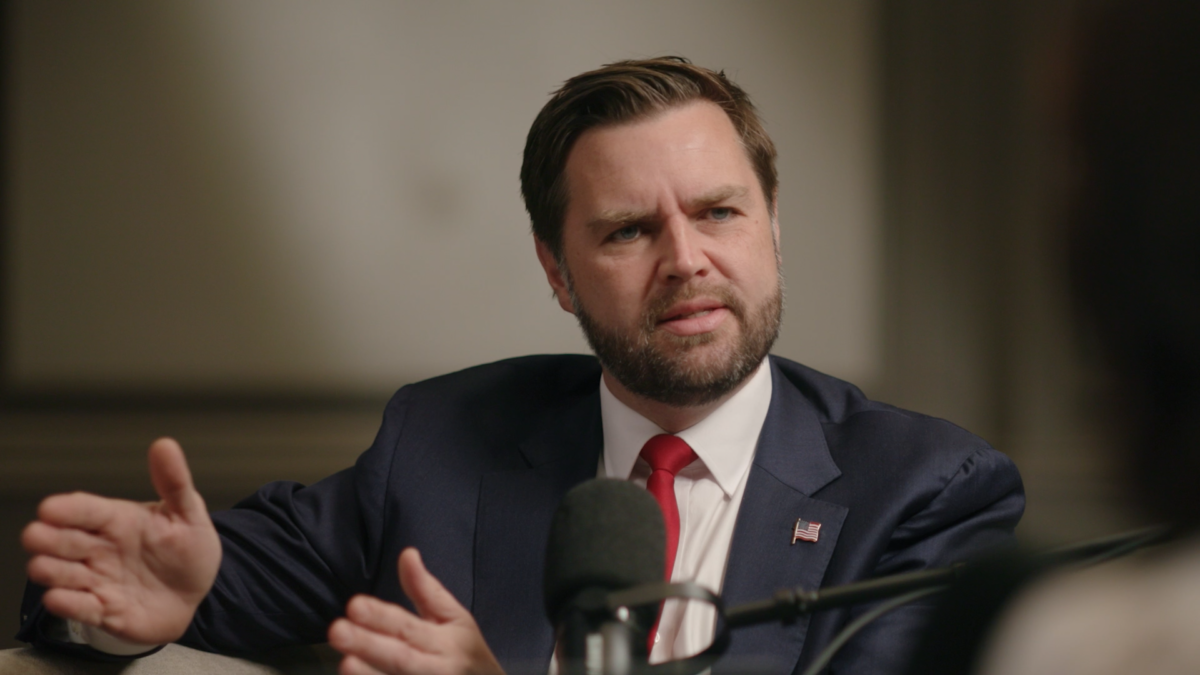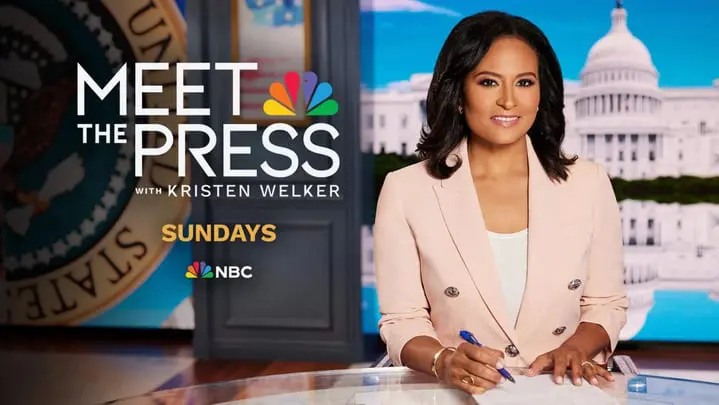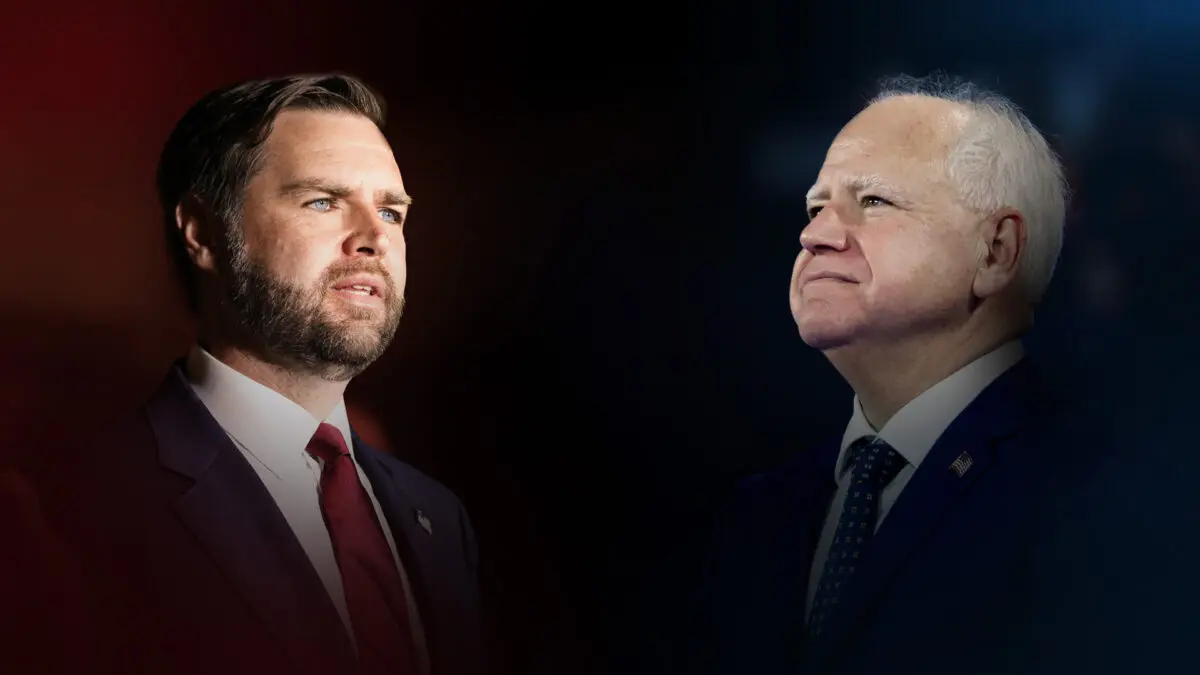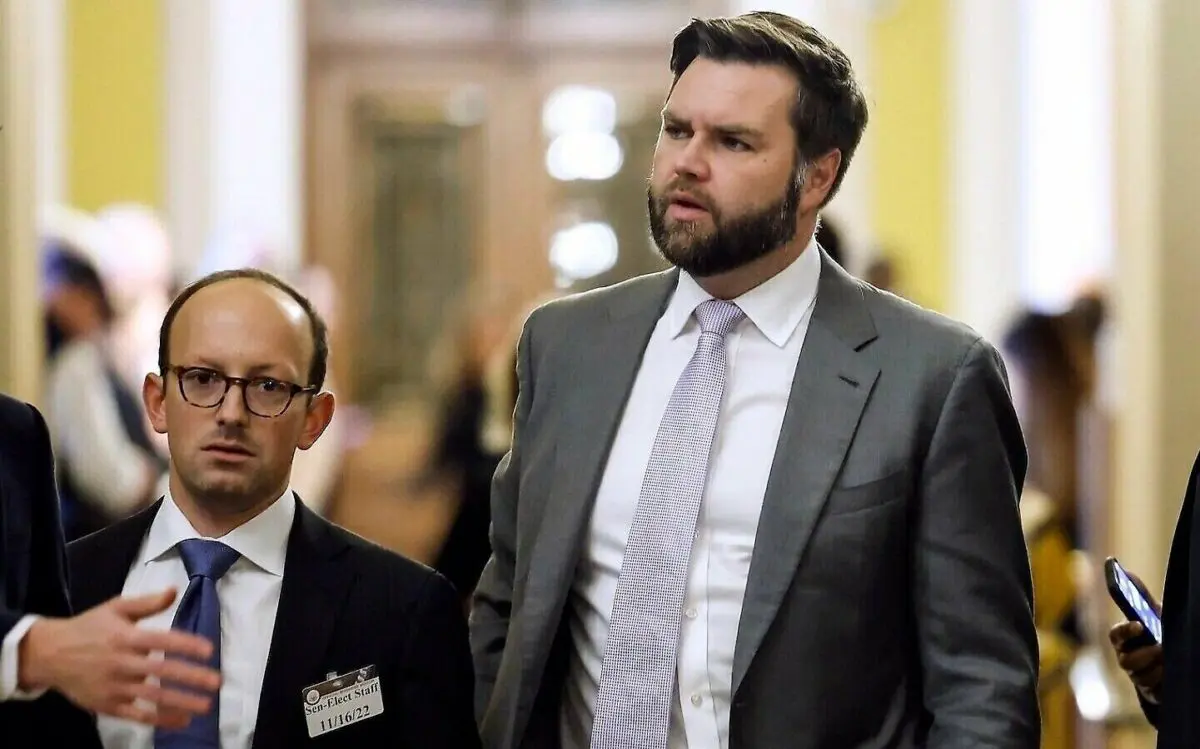In a recent high-stakes discussion, Vice President JD Vance took to the airwaves with Margaret Brennan on “Face the Nation,” marking his first substantial interview after assuming office. This conversation is packed with intriguing revelations that reflect Vance’s viewpoints on major national issues. His insights into immigration reform, executive pardons, and the role of big tech in society are particularly noteworthy. Let’s dive deeper into highlights of this revealing interview that captured widespread attention and sparked dialogue across the political spectrum.
Immigration Policy Under the Spotlight

Vance has taken a hard stance on immigration, particularly regarding the new administration’s policy shifts. In his interview, he expressed confidence that recent immigration enforcement measures, including heightened deportation efforts and stopping the arrest of immigrants near schools and places of worship, would ultimately benefit the U.S. Vance mentioned, “I desperately hope it has a chilling effect…on illegal immigrants coming into our country.” This statement underscores his belief in deterrence as a method to curb illegal immigration.
Reactions from Religious Organizations
Despite Vance’s intentions, his comments received backlash from various religious organizations, including the U.S. Conference of Catholic Bishops. Vance’s response was pointed; he suggested the organization had ulterior motives and questioned their commitment to humanitarian aid given their financial ties to resettling immigrants. This clash highlights the ongoing debate around immigration, ethics, and humanitarian responsibilities in contemporary America.
The Complexity of Refugee Admissions
Another pressing point discussed was the refugee admissions program. Vance seemed to waver on his prior commitments to help vetted individuals from conflict zones like Afghanistan, expressing concerns over the vetting processes used in admitting refugees. He stated, “We absolutely cannot unleash thousands of unvetted people into our country…” This statement indicates a significant shift in stance that ignites discussions about balancing empathy for those in crisis and national security.

JD Vance on Executive Orders and Economic Strategy
Vance’s interview also touched on the President’s executive orders aimed at revitalizing the economy. Refuting critics who claim that the administration neglects economic fears, Vance asserted that these orders are crucial to reversing inflation and protecting American jobs. He emphasized that the recent executive decisions on energy, particularly boosting domestic production, would help stabilize prices across the board.
Energy Policies and Their Implications
By declaring a national energy emergency, the administration aims to encourage exploration and resource development. Vance explained the domino effect of energy costs on groceries, mentioning that higher diesel prices ultimately lead to increased costs for consumers. His approach conveys a deep understanding of market mechanics, drawing connections between energy production and everyday life.

Constitutional Rights and Justice Department Accountability
The topic of pardons issued to those involved in the January 6th insurrection brought forth some of Vance’s most controversial viewpoints. He claimed that the Justice Department mishandled these cases, alleging a denial of due process. Vance defended President Trump’s choice to pardon these individuals, attributing the motivations behind the actions to a flawed judicial process rather than the actions of the supporters itself.
The Justification for Pardons
When asked about the violent acts committed during the Capitol riot, Vance affirmed that while violence should not be justified, the narrative surrounding these events has been skewed by partisan bias. His assertion that there is a double standard in how protesters from various backgrounds are treated underlines the ongoing polarization within the justice system.

Tech Giants and Political Influence
Vance dove into the expanding influence of Silicon Valley, suggesting that big tech firms like Facebook and Google wield too much power in shaping public discourse. He proposed breaking up these monopolies as a potential strategy to ensure that diverse viewpoints can flourish without suppression. His comments spark a significant discourse on the limits of influence exercised by mega-corporations in shaping political landscapes.
Taking a Stand Against Censorship
His remarks about the necessity to dismantle monopolistic structures indicate a readiness to confront tech powerhouses. Vance stated, “We believe fundamentally that big tech does have too much power,” emphasizing the need for reform to protect freedom of expression. This position resonates with many critics of tech’s reach and control.

Public Trust and Intelligence Services
Another intriguing aspect of Vance’s interview involved his support for Tulsi Gabbard as the director of national intelligence. Despite her controversial history, Vance expressed confidence in her ability to restore public faith in intelligence agencies. Highlighting her military background, he suggested that Gabbard would bring a much-needed perspective to eliminate the bureaucratic inefficiencies present in current intelligence assessments.
Restoring Integrity to Intelligence
Vance believes that Gabbard’s approach can redeploy the focus of intelligence towards its primary mission of safeguarding national interests, thus restoring integrity within the intelligence community. This optimism about Gabbard’s capabilities could represent a significant shift in domestic security policy, aligning operational goals more closely with public expectations.

Source: www.cbsnews.com
Hi there! I’m Jade, a 38-year-old gossip journalist with a passion for uncovering the juiciest stories in the world of celebrity news. With years of experience in the industry, I love sharing the latest trends and insider scoops.



